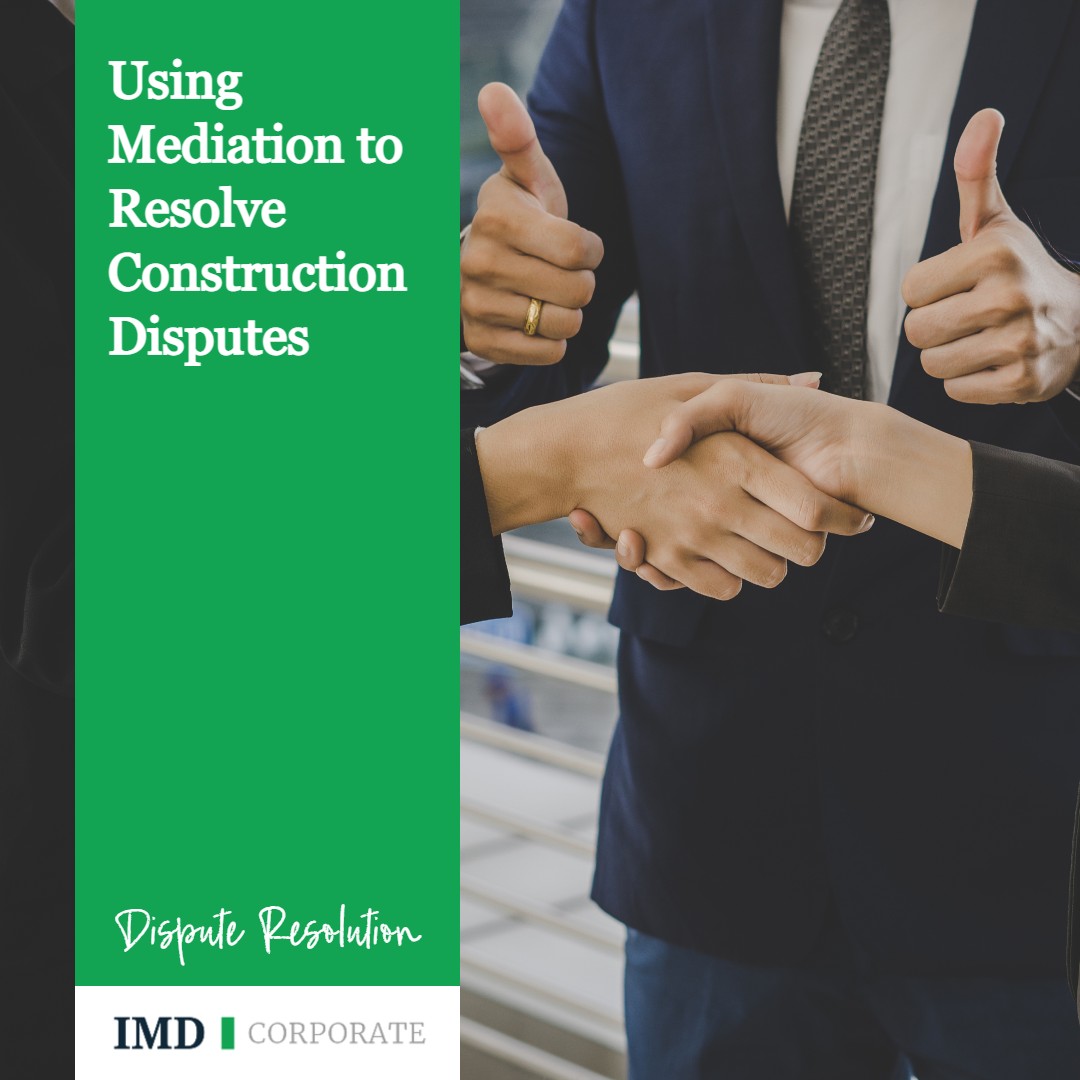
Construction projects can be complex and may take many years to complete. In this time, several parties can be involved, employing hundreds of workers and subcontractors. Delays are common, and so too are disputes. However, in order to keep any project on track, resolving disputes efficiently and cost-effectively is vital. It is important not only to bring the dispute to an end but also to maintain good working relationships. Mediation can help. In this article, we give an overview of using mediation to resolve construction disputes, including the benefits and process for doing so.
Disputes are very common in the construction industry, and parties will often use mediation to bring all types of disputes to an end quickly. Mediation can minimise both the time and cost involved in resolving a dispute and can also be carried out while the project is still going ahead.
Mediation is a dispute resolution process involving a private, neutral third party known as a mediator. The parties will work with the mediator to settle the dispute. The role of the mediator in these sessions is to facilitate structured discussion and lead the parties towards a suitable solution. Typically, in construction dispute mediation, the mediator will have significant experience in the construction industry and so will be able to understand the nature of the dispute fully.
The difference between mediation and other forms of dispute resolution is that a mediator focuses on what the parties need to reach a settlement, rather than what their legal rights might be, making the process more practical, efficient and solution-focused.
Mediation is not legally binding in itself, but parties can use mediation to find a mutually agreeable solution to facilitate the completion of the project. In mediation, the decision maker is not the mediator but the parties themselves. This differs from arbitration or Court proceedings where a decision will be reached by the arbitrator or judge. Parties retain complete control over the outcome when they agree to resolve a construction dispute using mediation. If parties can agree on a solution, the outcome of mediation can be a legally binding agreement.
Mediation is a voluntary process, which means you are not obliged to take part in mediation. However, the process is completely confidential, so there is no harm in trying to resolve a dispute through mediation and getting a better understanding of where you stand.
One of the main reasons parties choose to use mediation over other forms of dispute resolution is that it is significantly less expensive. Furthermore, you can resolve the dispute much quicker. Normally, mediation sessions can be completed in a matter of days, whereas court proceedings or arbitration can go on for weeks.
As soon as you are ready to start mediation, the sessions can be scheduled – unlike arbitration hearings and trials, which can take months or even years to get started. As you will know, it is often vital to come to a swift resolution to keep a project on track and to keep relations between parties to a construction contract on good working terms.
In addition to these practical benefits, maintaining good relationships, addressing grievances, and assessing the dispute objectively can improve the professionalism of the project overall. Both parties are given an opportunity to voice their concerns and put forward their case, leading to a better understanding of the difficulties faced by both sides.
Often, getting to the point of going to mediation is the most challenging part, but once discussions are open, both parties are happy to find a way forward that works for the project. We can provide expert advice and assistance in relation to construction disputes, including mediation. Get in touch today.
Our team of construction dispute solicitors are well known in the industry for their proactive and commercially focused advice, which is targeted at helping you achieve the best possible outcome. We are experienced in resolving disputes arising out of projects of all shapes and sizes and have particular expertise in dealing with large scale schemes where a dispute has arisen between multiple parties on a commercial or residential development. To discuss your specific needs and concerns with a member of our team, call us today on 0330 107 0107 or complete our online enquiry form, and we will get back to you without delay.
This article is for general information only and does not constitute legal or professional advice. Please note that the law may have changed since this article was published.